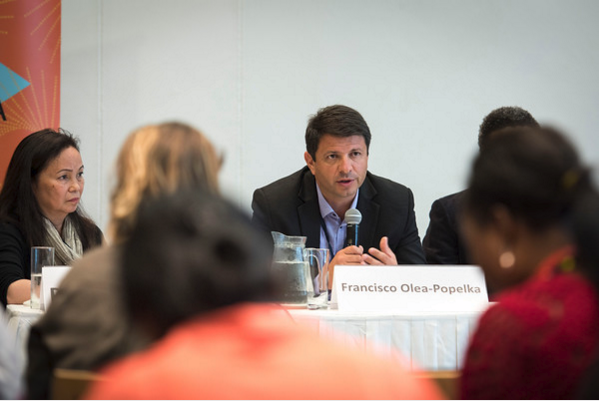Today, Tuberculosis (TB) remains to be one of the oldest known infectious diseases. Usually targeting the lungs, TB can attack any part of the body and may be fatal if left untreated. Until recently, TB has been treated as a disease that is transmitted from human to human. Dr. Fransisco Olea-Popelka, assistant professor at the College of Veterinary Medicine and Biomedical Sciences at Colorado State University, is on the forefront of advancing TB awareness to include zoonotic sources, and to shift the paradigm in treatment strategies.
In 2014, approximately 9.6 million people were infected with TB and 1.5 million TB-related deaths were reported. An estimated 1.4% of all TB cases are caused by zoonotic strains, affecting approximately 126,000 people, and making it a public health risk. Animal carriers of TB are increasingly gaining attention as research continues to uncover new zoonotic sources. “The people affected by zoonotic TB who we are now identifying likely represent the tip of the iceberg,” says Olea-Popelka. Cows have been identified as the most common culprits of zoonotic TB transmission (through their food products), however cats, ferrets, and lions have also been identified as having the potential to transmit TB to humans. Unbeknownst to many, TB can be transmitted through food, air, and infected animals/humans.
This past December, Olea-Popelka led an international working group at the 46th Union World Conference on Lung Health in South Africa. The conference theme was “A New Agenda: Lung Health Beyond 2015” which addressed the dynamic landscape of global public health and an impending era of action. Tuberculosis transmission and treatment had a large presence at this year’s meeting, as the World Health Organization’s ‘End TB Strategy’, aims to eradicate TB by 2035. Unless TB treatment for zoonotic sources is advanced however, this eradication will not occur. Without a paradigm shift in treatment strategies, it is estimated to take another two centuries to rid the world of TB. Thus, the work of Olea-Popelka and colleagues to mitigate the spread of TB is currently a vital public health service.

